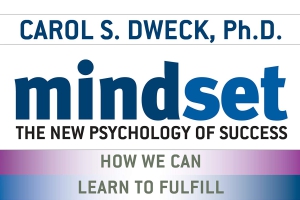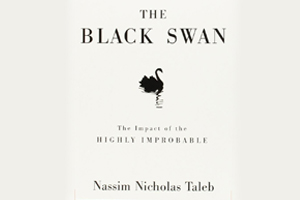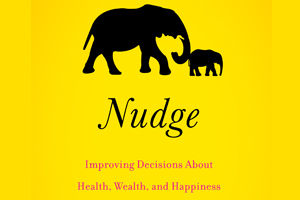Author: John C. Bogle
The founder of Vanguard Group and a world renowned proponent of the index investing strategy, John Bogle, also referred to as Jack, was the author of several popular books on the investing milieu, including Common Sense on Mutual Funds. Bogle has been credited with revolutionizing the mutual fund landscape by spearheading index investing, a strategy which enables investors to participate in market growth by tracking the growth of the underlying indices. Bogle’s aim in creating this strategy was to help average investors spend less on investing, thus helping them invest a larger part in the actual fund. Passive funds, unlike active funds, charge a lower commission as the scheme tracks the market and requires no active management from professional mutual fund managers, except for ensuring that the scheme remains closest to the underlying index. Given the ease of tracking the broader market, index schemes also act as a simpler and easier way of investing, making it more accessible to the laypeople.
Bogle passed away in 2019 but his strategy and advice remains as relevant today. His flagship fund, which was created with the aim of tracking the S&P 500 index, continues to follow his core philosophy. This was the first index fund targeted at retail investors. His treatise, Common Sense on Mutual Funds: New Imperatives for the Intelligent Investor, delineates his ideas and advice on investing in mutual funds, with the aim of attracting high returns in a low expense model. Bogle is also known as the Father of Passive Investing, making him a guide to countless number of new age investors keen on the passive investing style.
Key Takeaways
- Limiting costs can help you realise significantly higher returns on your investments.
- Since markets are volatile in nature, it is better to find a fund which matches the returns offered by the market, while charging a low fee.
- While stocks are considered riskier than bonds, if you are keen on long-term wealth generation you should focus on stocks for the firepower it provides.
- When considering mutual fund options, look for schemes which operate in “the most economical, most efficient, and most honest way possible”.
- “The dream and the will to found a kingdom, the will to conquer and to succeed, and the joy of creating and exercising one’s energy and ingenuity” are the factors which create a successful entrepreneur.
Investors today are spoilt for choice when it comes to investment options and avenues. Even if you choose to go with a mutual fund, you still have to make a variety of decisions – should you pick a large capitalisation fund from the equity category, or a balanced advantage fund which divides investments in both debt and equity? Or should you just stick to debt, since it is considered a safer option? Bogle, a major proponent of passive investing, states that investors must look at the equity market to realize strong gains. He furthers the case for passive investment in index funds by saying that while you may be able to pick a stock or two which manage to beat the market index in the short-term, stocks tend to average out over the longer term. And, the amount you spend on investing in active funds will not help you outrun the market going ahead. Therefore, Bogle advises you to park your funds in low cost index funds and realize returns which are in line with the broader market.
Limiting costs helps in the long run
While you may be tempted to invest in actively managed funds as you might expect these schemes to beat the market, the higher expense linked to such funds should act as a concern. Actively managed funds could cause your portfolio to lose value at three levels – the higher underlying fees being charged, the constant turnover in your portfolio, and the higher taxes you attract. While asset allocation and diversification are important, limiting the cost is more important, especially when considering longer term scenarios. Further, with passive fund investments which track the benchmark index, you can ensure optimal diversification at a fraction of the fees being charged by active funds. Therefore, limiting costs is a common sense strategy for mutual fund investors as the lower costs ensure that a much larger portion of your money is parked in the investment, enabling higher future returns.
Simplicity is the best way to go
While you might work really hard at curating your portfolios for the best returns, one of the biggest things that you must consider is the fact that simplicity can take you a long way. Index funds mirror the market as a whole and they allow you to gain exposure to the best companies in the market. And that too, at a lower cost. Index funds help you simplify your portfolio, thus taking out concerns about tracking the market or micromanaging your portfolio regularly. Further, the simplistic nature of index funds also keeps the cost or fee low, benefitting you in the long run. Index funds are also a great bet since you do not really know how the market will move in the years or months ahead. However, historically, the market has offered significant returns in the long term. In such a scenario, committing to a passive fund and mirroring the market helps you make the most of the opportunities.
The question of stocks vs bonds
If you do not believe in taking on risk, should you stick with bond investments? Well, history indicates that people keen on long-term investments should focus on stocks as they offer much higher historical returns when compared with bonds. This means that you do not have to worry about the underlying risk, as long as you stick with the market index and stay committed for a longer duration. According to Bogle, “The data makes clear that, if risk is the chance of failing to earn a real return over the long term, bonds have carried a higher risk than stocks.” However, that does not mean that you should steer clear of bond investments. Allocate a portion of your corpus to bonds as an insurance against short-term or even slightly extended slump in the stock market while also diversifying your portfolio.
The risk-return equation and the role of time
It is frequently asserted that risk and returns enjoy a directly proportional relationship. Therefore, the higher the risk, the higher is the potential for returns, and this is nowhere as evident as it is in the stock market. It is impossible for you to find a fund which will beat the market continuously, no matter the expertise of the fund manager. Therefore, it is advisable to instead choose a fund which offers market-linked returns, but at low costs. Further, since volatility is a part and parcel of the market, you should work on making time your best friend. When you start investing early, and leave the money parked in the market for a longer time, you give the market time to recoup your losses and solidify your gains, ensuring high returns in the long run. Indeed, the longer your time horizon, the less variable your average annual returns will be, setting you up for a happy future.
Choose fund houses offering best practices
As an investor, you need to look at everything, from your fund house to the scheme, before you invest. Even if you choose to invest in passive funds, you must also consider which fund houses offer the best returns. Look for mutual funds which are being operated in the “most economical, most efficient, and most honest way possible” as this will ensure that your corpus is safe and secure. Also look for fund houses which are committed to benefiting their clients, rather than just keeping an eye on profit generation.
Lessons on entrepreneurship and leadership
It is not easy to be an entrepreneur. It is even more difficult to be an exemplary leader. The story of Vanguard indicates how Bogle displayed the necessary tenets of a successful entrepreneur, which includes the dream and will to foster a kingdom, the willpower to succeed and feeling the joy inherent in creating something ingenuous. According to Bogle, leadership can be defined in the following principals – “Readiness, foresight, a sense of purpose, passion, the idea of the leader as servant, failure, determination, patience, and courage. Based on my experience, these are nine of the principal attributes essential to effective leadership.” A leader must lead by example and stay true to his principles if he is to be a true and exemplary leader.
Bogle believed that, for investors, it is enough to have a good plan. Obsessing on creating the perfect plan or the perfect portfolio will only lead to fallacies and a waste of time. It is simpler, easier and more lucrative to focus on the strengths of the market and participate in its growth by investing in passive index funds. In addition, the low cost of passive fund investment is another way to boost your wealth and retain tremendous returns over the longer term.
For a long time now, both investors and fund managers have been focusing on trying to beat the markets. However, more recently, many investors have realised that getting returns in line with the market and at a certain level of risk, can be much better than trying to beat the market. What makes this proposition even more compelling is the fact that it is also relatively more cost efficient compared to actively managed funds. But the key question for investors is how you can generate market returns. The answer lies in mutual funds. As it is well-known, mutual funds are investment vehicles that pool investor money and then invest it across multiple instruments and strategies. One of the options available in the mutual funds space in passive funds, i.e., Exchange Traded Funds (ETFs) and Index funds. These funds aim to perform in line with an index or basket of securities by creating a portfolio that mirrors their composition and passively holding on to the portfolio. As a result, they are able to generate remains similar to the market, adjusted for transaction costs and tracking error. This way, you can easily enjoy index returns, diversify your investment portfolio, and reduce the overall risk of your investment portfolio all the while paying for lesser expenses.
An investor education initiative by Edelweiss Mutual Fund
All Mutual Fund Investors have to go through a onetime KYC process. Investor should deal only with Registered Mutual Fund (RMF). For more info on KYC, RMF and procedure to lodge/redress any complaints, visit - https://www.edelweissmf.com/kyc-norms
MUTUAL FUND INVESTMENTS ARE SUBJECT TO MARKET RISKS, READ ALL SCHEME RELATED DOCUMENTS CAREFULLY
Trending Books
MUTUAL FUND INVESTMENTS ARE SUBJECT TO MARKET RISKS, READ ALL SCHEME RELATED DOCUMENTS CAREFULLY.













